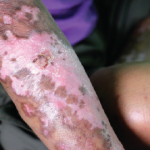It is most important to finish an encounter with the question, “How are you handling things?” It takes time to openly discuss the emotional impact of the illness, but it is most important. It is common to discover distress that is not mentioned. These days, I see the eyes begin to tear behind the COVID face masks.
The patient-doctor relationship is unique, based on trust and a special type of loving friendship. All my clinical activity is held together by a passion for my work, a clear understanding of my limitations, a willingness to seek help from my colleagues, a desire to understand the biology behind the clinical events and a constant attempt to do whatever is needed to comfort and improve my patient’s quality of life. I still have a view that what I decided today may not be ideal and refreshing my view of the problem and my treatment should be reviewed at each encounter.
I am pretty sure that listening and being available to provide comfort to my patients are very powerful medications.
TR: Who were some of your clinician role models and what qualities did you admire in these individuals?
Dr. Wigley: When I was in high school, my family physician was Dr. Louis Michaelos, a tall, handsome, Greek man with thick, dark eyebrows and a gentle manner who looked like the doctor I hoped to become. Later, while in medical school, I spent a month-long rotation working in his office and began to learn some of the skills I use today. He would always start the encounter by taking the vital signs himself, telling me, “It is most important to gently touch your patient so you connect.” He was aware of his limitations as a primary care physician and made referrals so the patient got the expert help that they needed.
In medical school, I worked with Robert Waldman, MD, who was an immunologist and did his clinical training at Johns Hopkins. He helped me appreciate the importance of understanding basic biology and applying it to the care of patients; he also launched my clinical research career.
During my training at Johns Hopkins there were many who influenced me, including my colleague Ernest Arnett, MD. There were many talented members of the faculty, including Philip Tumulty, MD; Victor McKusick, MD; and C. Lockard Conley, MD. Dr. Conley was an incredibly gifted scientist and clinician who discovered the lupus anticoagulant.



